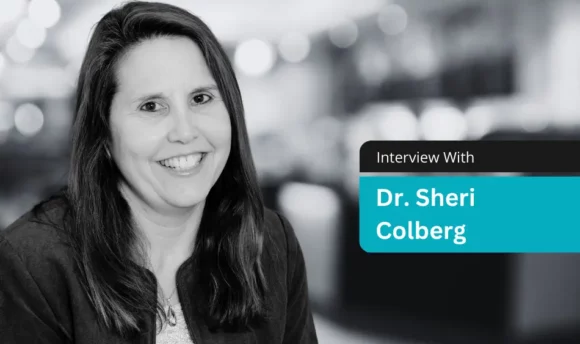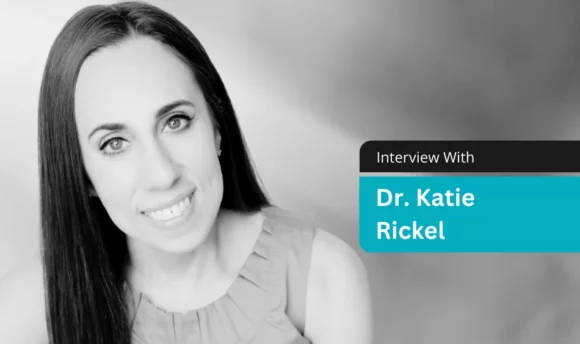Eileen Faucher, Brass Tacks Health: “Having more diverse perspectives at the table leads to more innovation”
Understanding how a drug or therapy affects a variety of demographic groups is essential to ensuring that the product is safe and effective for everyone. However, the industry still struggles to include a broader range of people in clinical trials.

To find out what steps companies can take to ensure inclusivity and diversity, we spoke with Eileen Faucher, founder of Brass Tacks Health, a consulting firm that helps biotech and pharmaceutical companies deliver quality treatments to patients around the world.
In this interview, she shares her journey and insights on how best to ensure the success of drug development initiatives, the importance of diversity in research and testing, and her vision for the future of Brass Tacks Health.
What has your professional journey been like? How did it all start?
My professional journey started in Professor Martin Gouterman’s chemistry lab at the University of Washington. I didn’t realize how much I loved chemistry until after college, so I lacked a lot of prerequisite coursework. But Professor Gouterman took a chance on me and gave me a job in his lab anyway. I spent the next year making the phosphorescent pressure-sensitive paint that his group developed for Boeing and NASA to use in their wind tunnel tests. This gave me the experience I needed to go to graduate school and get my Ph.D. in chemistry.
In science, breakthroughs happen when your experiment yields a result that wasn’t what you expected. That’s the way my professional journey has been. I’m very forward-thinking, which means that when I started out, I thought I could envision the trajectory of my career and set my expectations accordingly. When I was in graduate school, I assumed I would stay in academia. When my postdoc experience motivated me to switch to biotech, I assumed I would advance in a linear fashion, as per my first title in market planning. What I’ve come to realize is that few things are actually linear. All of the biggest turning points in my career were times when things didn’t work out the way I expected, but in retrospect, it always worked out for the best, and I’m grateful for each and every one of those breakthroughs.
What inspired you to create Brass Tacks Health?
So many brilliant scientists have dedicated their lives to advancing the field of drug development. Their achievements are celebrated by science-minded people around the world. But what I learned when I first moved into the industry is that great science doesn’t sell itself. What I mean is that behavior change is a vastly underestimated hurdle, especially when it comes to healthcare innovation. Physicians are busy with all the demands of today’s healthcare system and have limited time to stay abreast of the new data that is coming out all the time. Even with great data and well-controlled trials, if a company fails to explain the benefit of its new therapy over the current standard of care, providers may not immediately understand how to integrate it into their existing toolkit. And when that happens, patients don’t get the benefit.
I started Brass Tacks Health to keep drug developers in touch with emerging trends and the perspectives of practicing physicians. In drug development, competitive intensity has never been greater. There were 9,321 trials in the NIH database in 2006. Today, there are more than 40 times that amount. Our clients rely on us to find the signal through the noise in crowded landscapes and to contextualize what they need to know about the big picture to align their development plans with where the standard of care is headed. This enables them to optimize efficiency and keep their research efforts rooted in what is and will be the most clinically meaningful therapeutic advances for patients with cancer and other diseases.
How do you keep up with the latest advancements in oncology? Do you see AI playing an important role in your field?
Staying on top of the latest developments in oncology is what our clients hire us for. We follow all the news, especially data releases, but also press releases, SEC filings, clinical trial databases, social media, investor presentations, and other non-confidential sources. Then we distill that flood of information down to the customized takeaways that our clients need to know to keep their specific strategies ahead of the curve.
I’ve been doing this for more than a decade, so my team and I are able to contextualize new developments relative to past trends and relevant analogs. And we constantly test our assumptions and insights through discussions with key stakeholders, such as oncologists, pathologists, bench scientists, and others at the forefront of the field. This allows us to see the bigger picture and stay focused on what really matters.
I’m sure AI will play an important role in my field (and every field) in the future, for example, in mining data for keywords or trends. I’m not the best person to talk about this because Brass Tacks’ value proposition is more about quality than quantity. We deliberately rely on our own expertise and the insights of a select group of vetted, trusted analysts and stakeholders to deliver highly customized analyses with high data integrity.
What do you think are the biggest issues in cancer research and drug development today?
Now more than ever, understanding diversity is critical to the success of drug development. The biotech and pharma leaders of the future will need robust data demonstrating the efficacy and safety of their therapies not only in the white population – which currently comprises over 90% of US clinical trial participants – but in the more representative patient population of our increasingly diverse America. To achieve this, companies must prioritize the recruitment of a much more diverse patient population into their clinical trials. It’s not only the right thing to do ethically, it’s the scientific thing to do.
Genetic variations can make treatments more or less toxic for one racial or ethnic group than another. For example, many African Americans have allelic variants and gene hyper-expression patterns that can lead to more aggressive tumor types and worse outcomes compared to other groups.
Overall, marginalized communities are under-represented in genomic reference databases. Immune responses are also known to be influenced by factors such as sex. For example, differences in the prevalence of autoimmune diseases and responses to vaccinations have been shown to be influenced by sex-specific immunological differences. Yet in the clinical trials that have served as the basis of approvals for nearly all immunotherapies on the market today, women and non-white groups have been in the minority across the board.
In your experience, what are the most effective ways to ensure the success of drug development initiatives?
Two things: More diversity in all areas of research and development, and robust planning for competitiveness.
Women are underrepresented in most therapeutic areas, from the preclinical models to the clinical trials that support regulatory approval to the scientists who lead the research. Even the mice used in preclinical experiments are almost always male! By recognizing and addressing this, we are moving the field toward greater access for women and other underrepresented groups.
I believe that the companies that lead the industry in recruiting clinical trial populations that adequately reflect the diversity of the real world will gain a significant competitive advantage. I see them in the best position to not only understand the markets that lie ahead but also to deliver new therapies in an equitable manner. Drug developers that fully embrace this paradigm shift and broaden their competitive planning lens to encompass the entirety of their addressable markets are more likely to secure a competitive advantage.
This lack of diversity in R&D has been a blind spot in drug development initiatives. What other blind spots exist? Robust competitive readiness planning means being willing to challenge underlying assumptions, identify blind spots, and refine strategies so that we can develop more clinically meaningful therapies for more patients.
Could you tell us a little bit more about the American Cancer Society Advisory Board and how you are involved?
The mission of the American Cancer Society (ACS) is to improve the lives of people with cancer and their families through advocacy, research, and patient support so that everyone has the opportunity to prevent, detect, treat, and survive cancer. The American Cancer Society is a leading cancer control organization and the largest funder of cancer research outside of the US government. In addition to cancer research, ACS’s impact includes access to care for all, prevention and early detection, and direct patient support, including transportation and housing. Headquartered in Atlanta with regional and local offices across the country, the ACS team is available 24/7 via a live helpline to those affected by cancer and those in need.
I am a member of the ACS Washington State Board of Advisors. My focus on the board has been on advocating for health equity and reducing cancer-related disparities in our region. As a group, we work to educate and mobilize our local community to join in the fight against cancer and partner with ACS to raise funds to fuel the mission, in large part by spearheading signature events and campaigns and initiatives in our region, such as Legacy & Leadership, the Puget Sound Researcher Dinner, Relay for Life, and our former Wine Auction.
What advancements and innovations in healthcare are you most excited about in the near future?
From a basic science perspective, there have been some amazing advances in cancer research with immunotherapies. There are small subsets of patients here and there with very advanced diseases that have been essentially “cured,” and that is amazing to see. Now the field is starting to move immunotherapies earlier in the treatment paradigm, where we will hopefully see that benefit extend to more patients.
Another thing I’m excited to see is that drug developers are starting to compete to increase diversity, both in their own ranks and in their clinical trial patient populations. At this point, the research is clear that having more diverse perspectives at the table leads to more innovation and more breakthroughs. Drug development needs to be based on a diversity of perspectives that matches the diversity of the patient populations being served. If we are guided by this kind of partnership model, the rising tide will lift all boats. As clinical research becomes more diverse, I believe we are on the verge of making meaningful progress at an unprecedented pace.
What are the most important things you have learned throughout your career in the biotech and pharma industry?
It can be intimidating to sit at the table with the leaders of the biotech and pharmaceutical industries. This is a group with a variety of advanced degrees and convictions strong enough to withstand the constant scrutiny of analysts, shareholders, regulators, and patient advocacy groups. In this high-stakes, highly competitive culture, I’ve found that it’s the people who have the courage to show vulnerability and openly question that drive the entire industry forward. So, at the risk of sounding clichéd, one of the most important things I’ve learned is the value of speaking up when you have a question.
The drug development landscape is changing rapidly. In oncology, for example, clinical guidelines are updated several times a year, there are a variety of different pathways to approval, and first-in-class therapies are entering the clinic all the time. The science behind these therapies can be incredibly complex, as can the process of getting them manufactured, approved, and covered by payers. It’s simply not realistic for everyone to understand it all.
The leaders who are comfortable being authentic about what they don’t know, who are willing to acknowledge their blind spots and adjust their assumptions accordingly, are the ones who really inspire me. This level of vulnerability can be uncomfortable, especially when your job is to convey unwavering confidence in your vision and strategy. But it’s exactly the kind of behavior we need to model in order to acknowledge shortcomings, build trust, and move the field forward in a meaningful and ethical way.
Tell us about the future of Brass Tacks Health: What does it look like?
The social justice activism that grew out of the response to George Floyd’s murder and the lack of racial diversity in the early Covid-19 trials inspired many big pharma companies to announce commitments to address health disparities.
At Brass Tacks, we thoughtfully work with drug developers who have integrated these commitments into their company culture and are willing to authentically challenge their own implicit biases and consider diverse perspectives as part of their competitive readiness planning. We are grateful to now be able to serve as thought partners to a select group of clients, providing them with the clarity of vision and customized insights they need to chart the most meaningful, pragmatic, and equitable development path to market.
I look forward to expanding this client base as more leaders in the field are ready to reframe their thinking and recognize the value of building their competitive advantage by leveraging their organization’s commitment to advancing equity and inclusion.

















































 Select your language:
Select your language: 








